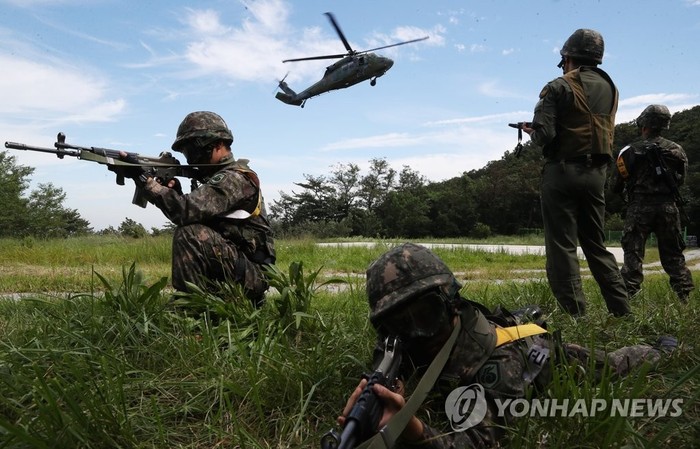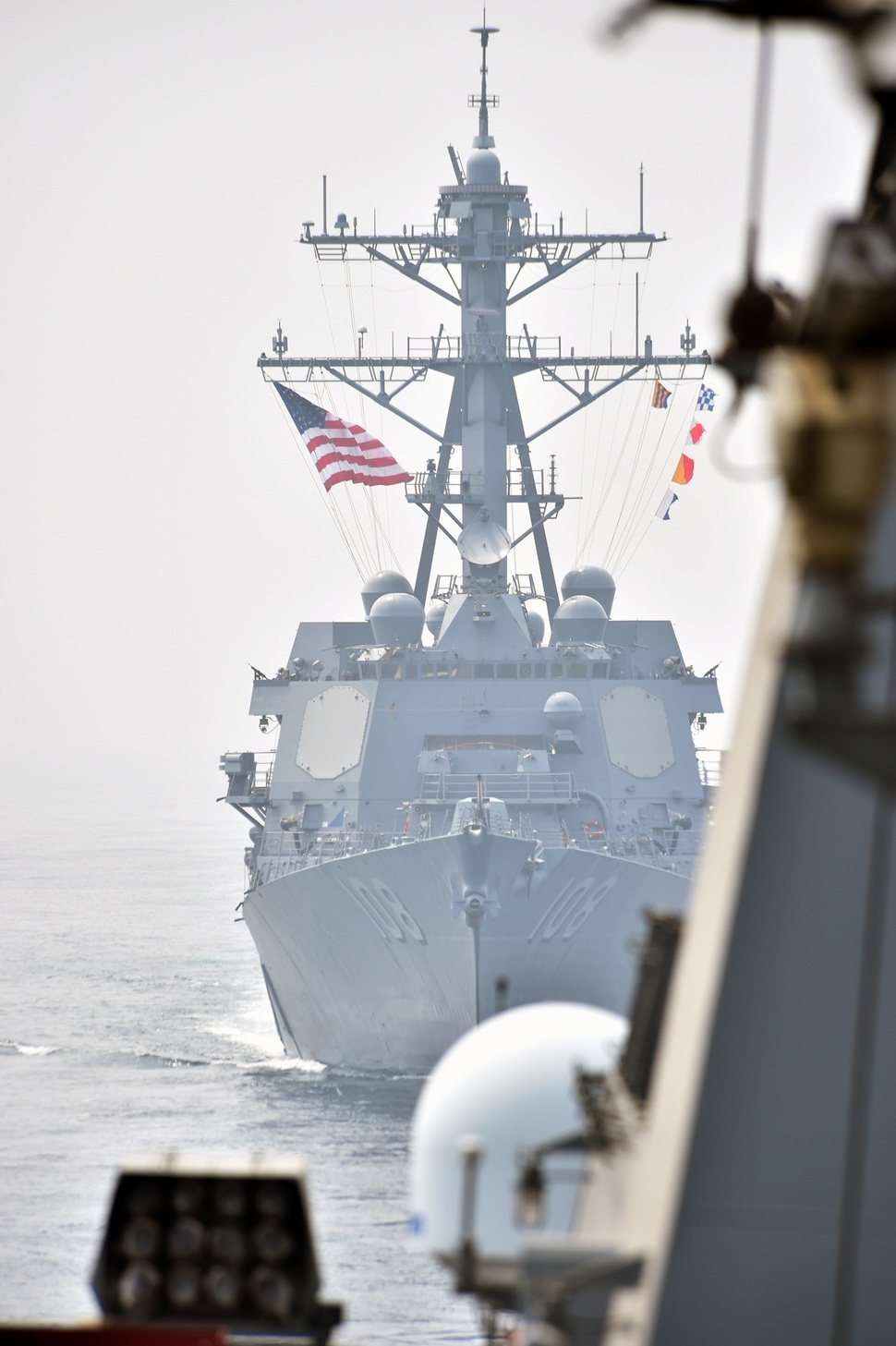 |
|
South Korea-US joint military exercises (Yonhap News)
|
Suspension of small-scale exercises part of good-faith measures in denuclearization negotiations
The South Korean and US militaries have decided to suspend the Korea Marine Exercise Program (KMEP) – a series of joint exercises between the two countries’ marines – through September. This appears to be a preemptive move designed to set the mood for North Korea-US talks aimed at the North’s denuclearization. Since this suspension affects small-scale exercises of battalions and smaller units, attention is focusing on how many other joint exercises will be suspended moving forward. “After close deliberations, [South Korea and the US] have decided to indefinitely postpone two rounds of the Korea Marine Exercise Program that were scheduled to take place over the next three months. These deliberations have led to the suspension of exercises scheduled between July and September,” South Korea’s Defense Ministry announced on June 23. The US Defense Department confirmed the same in a statement attributed to Pentagon Chief Spokesperson Dana White. This decision comes a few days after an announcement about the suspension of the Freedom Guardian exercises, which had been scheduled for August. The Defense Ministry described the decision as “a follow-up measure to the North Korea-US summit and the inter-Korean summits.” White’s statement specified the background of the decision as follows: “On June 22, Secretary of Defense James N. Mattis met with Secretary of State Mike Pompeo, Chairman of the Joint Chiefs of Staff General Joe Dunford, and Assistant to the President for National Security Affairs Ambassador John Bolton to discuss efforts to implement the results of the Singapore Summit between President Trump and Chairman Kim.” This makes clear that the measure is aimed at urging North Korea to engage in denuclearization talks with the US with a proactive and sincere attitude. The suspended marine exercises are small-scale training exercises that are carried out in Pohang, North Gyeongsang Province, by battalions and smaller units with the US III Marine Expeditionary Force, stationed in Okinawa, along with the South Korean marines. These exercises have been held about 10 times each year since 1976. After North Korea bombed Yeonpyeong Island in 2011, they were expanded to include South Korea’s northwest islands in the Yellow Sea. Nineteen of these exercises were scheduled for this year, and 11 of them have already been held. The military authorities had not been expected to suspend such small-scale exercises, which are held for tactical units. The Freedom Guardian joint exercises had already been canceled, but those were large-scale exercises that presumed a full-scale war on the Korean Peninsula. Freedom Guardian exercises had been announced to the press each year, and North Korea had sharply criticized them as “a rehearsal for an invasion” of the North. But the suspended marine exercises were so small in scale that they received little attention from the press. North Korea has almost never taken issue with them, and many assumed there would be no reason to suspend them. The fact that they were suspended anyway to show South Korea and the US’s sincerity appears to be a message for the North, strongly urging it to push ahead with denuclearization. The South Korean and US militaries also said that “additional measures could follow if North Korea continues productive deliberations in good faith.” This hints at the possibility that joint naval and air force exercises could also be suspended in the future. Air force exercises scheduled for the second half of the year include Vigilant Ace, Buddy Wing and Pacific Thunder. The navy has also carried out at least two large-scale joint maritime exercises every year. Among these exercises, the ones that involve the deployment of US military assets stationed in other countries are likely to be canceled. “North Korea has generally objected to exercises that brought American troops from overseas onto the Korean Peninsula. That will likely be considered in adjusting the exercises,” a military official said.
 |
|
South Korea-US joint naval drills (provided by the Republic of Korea Navy)
|







